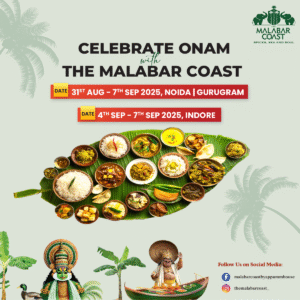
How to create the ultimate customer delight- In the intensely competitive 21st-century marketplace, drawing consumers’ attention has become notably challenging. Every brand is present online, offering infinite product choices and tempting offers to stand out. In such a dynamic landscape, customization of the product gives a competitive edge to the brand and proves efficacious in capturing and retaining consumer’s attention.
Customization has become a raging trend in a short period of time. Considering the rising demand for products with a personal touch, diverse sectors, right from technology to consumer products, are embracing it to enhance consumers’ experience. This new branding strategy caters well to modern-day aware, informed, and conscious consumers. Buyers today look beyond the traditional offerings and prefer personalized products tailored to their precise needs. They perceive it as a celebration of individuality, fostering deeper connections.
Also read: COVID Variant JN.1 in India: Key Signs and Symptoms to Watch Out For
Anchoring Brands for Growth
For brands, customization helps not only penetrate new markets but also build a loyal consumer marketplace. Particularly in the case of a start-up, offering customization services helps them reach new consumers, and persuade them to try the products for the first time, an objective which otherwise could be complex to achieve. Meanwhile, for established brands, it helps to retain the loyal consumer base and strengthen brand loyalty over time. According to 2019 Deloitte data, on average, 36% of customers expressed interest in purchasing personalized products or services. Out of which 1 out of 5 people were ready to pay a 20% premium, and approximately 48% were even willing to wait for a personalized product.
Benefits of Customizing Diversified Needs
About the division specializing in consumer products, customization can be the key to meeting the individual needs of people from diverse demographics with diverse requirements. Consumer goods find extensive usage in daily life. They are basic requirements to maintain the standard of living; hence, their consumption is much higher than that of any product across categories. However, the requirements may vary based on demographics, people’s personal choices, and cultural differences. Recognizing this diversity and modifying the product based on the consumer’s recommendations is crucial for gaining consumer loyalty and organically increasing the demand for the product.
For instance, every consumer has different concerns and requirements when it comes to skincare or hygiene. It is impossible to fulfil all their requirements with two or three products. Giving them the choice to customize according to their respective necessities is a better option. They will deliver better results in a shorter period of time, will help to strengthen the bond, increase the level of trust, and improve the likelihood of repeat business.
Also read: Employment Trends In EV Sector For 2024
Conclusion
Apart from boosting revenue, personalizing consumer products can enhance efficiency, ensure resource optimization, and reduce unwarranted wastage. Mass production of products frequently results in wastage if they remain unpurchased by the consumer. By introducing personalization options, companies can tailor their production to meet specific demands, thereby reducing overall carbon footprints and ensuring greater customer satisfaction.
Partial or complete, customization is a full-proof marketing solution to gain leverage over similar products available in the market. It is the future of the industry and the sooner companies adopt it, the better equipped they will be to establish a system to navigate the consumer’s demand smoothly. Ultimately, consumer satisfaction is paramount, and happy customers are repeat customers.
By Yash Jaipuria, Chief Executive, Ginni Filaments



